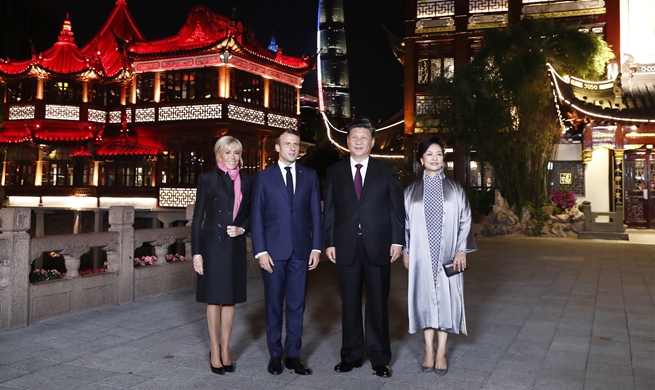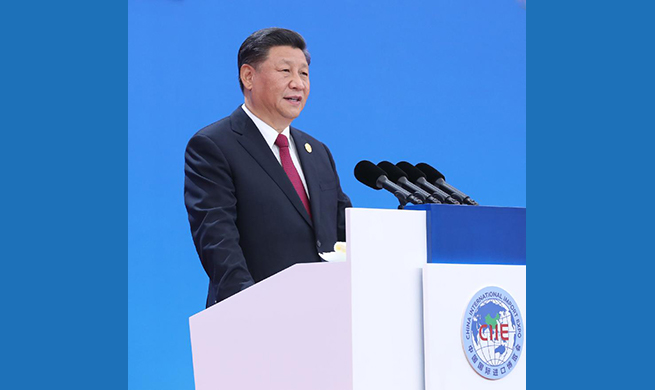LONDON, Nov. 6 (Xinhua) -- It is wrong to use referendums for decision-making in representative democracy amid fear of Scottish breakaway and Brexit fatigue, a former British diplomat has said.
"I think we will regret having had constitutional referendums in the way that we have done them, both for Scottish and Welsh independence and now for Europe," Ivan Rogers, Britain's former ambassador to the European Union (EU), told Xinhua in a recent interview.
Rogers predicted that there might still be a Scottish breakaway in the future, although British Prime Minister Boris Johnson said Sunday he would rule out a new referendum on Scottish independence.
Johnson's rejection came after Scotland's First Minister and the Scottish National Party (SNP) Leader Nicola Sturgeon told a rally in Glasgow that the time would come for Scotland to break away from the chaos of Westminster in a second independence vote in 2020.
The first independence vote took place in 2014 when people in Scotland voted by a majority to remain part of Britain in what was described as a once-in-a-generation poll.
According to SNP politicians, the situation changed in 2016 when Scotland voted to remain in the EU, going against the national vote in favour of Brexit.
"I think quite a lot of English people would be perfectly happy to say goodbye to the Scots. I think this is sad, but I think the union is fraying and I think Scottish sentiment ... is very different from the English," Rogers said.
"The danger is that as the Conservative Party becomes more English-focused, they won't care about Northern Ireland either. There's a risk that the UK ends up as just England and Wales essentially," he added.
Still, the ex-diplomat said he did not "want to see another one (referendum) for a while," although "there's a crisis coming there."
Rogers also believes that Britain is now suffering from a Brexit fatigue.
"People are really fed up with Brexit. We've now had over three years since the referendum, and people still see parliament going round and round in ever smaller circles. People just ask why is it taking so long," Rogers said.
The former ambassador said that Britain might be forced to pay a price for the 2016 referendum where the British people voted to leave the EU by a 52-48 margin.
"I don't think there is an example in the modern world of a country deliberately taking itself out of a trade bloc. I can't think of any example where anybody has done this before," Rogers said.
Economists in Britain as well as in Germany and France all see Brexit as a massive economic experiment because nobody has ever done this before, he said.
"You are deliberately deliberalizing trade," he said, adding that departing from the EU will make trade with Europe more difficult.
"We are introducing new barriers to trade which didn't exist over the last 40 years. So that has to be a negative for the economy in the short to medium term," he said, adding that the country has to be careful in choosing its new economic model after Brexit.
"It can be done, but you do need to be serious. A deintegration is complex," he said.
"You have to be really careful about how you do that, and not causing a recession in this country which could be quite severe," he added.













